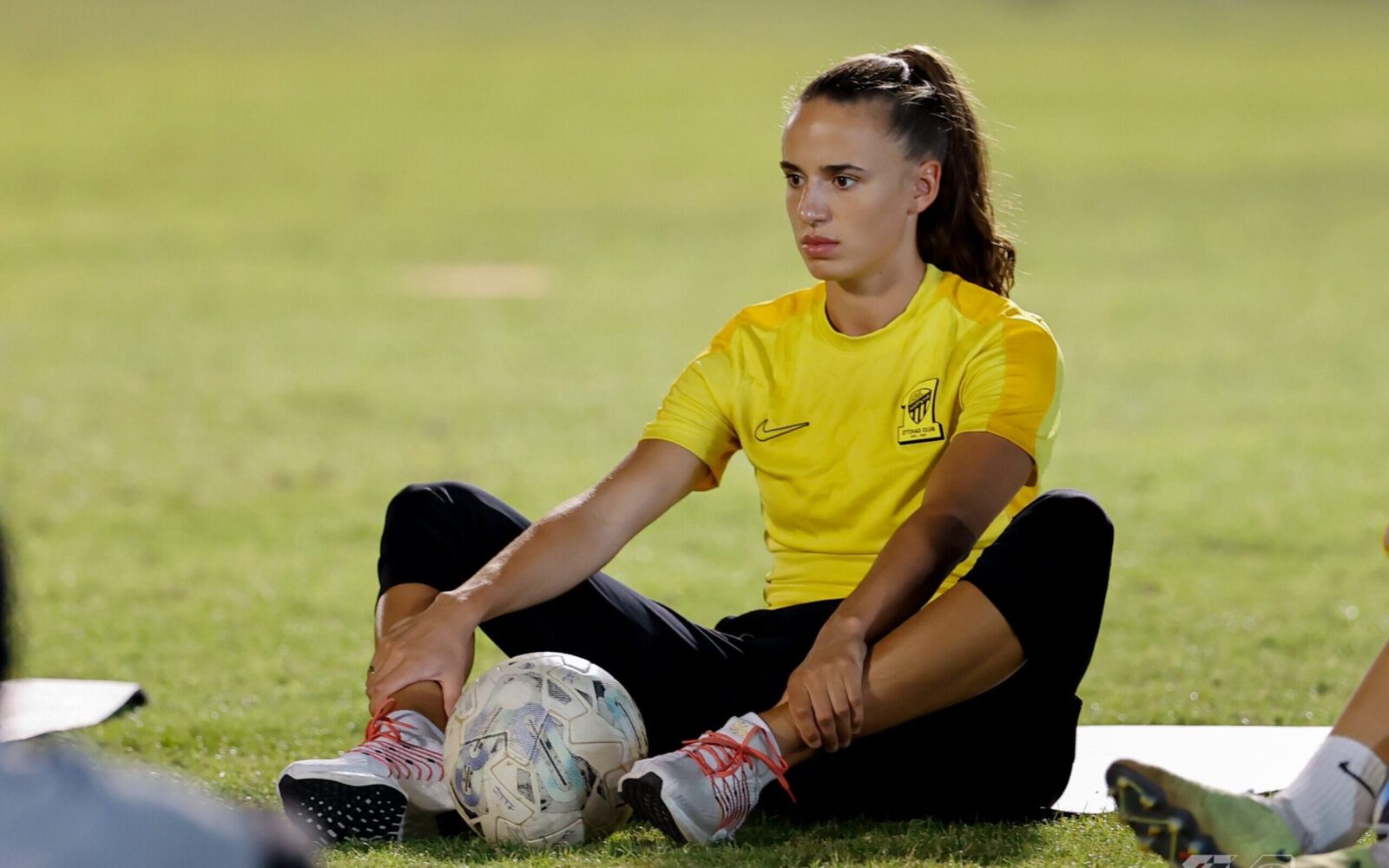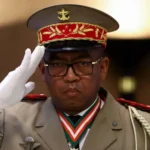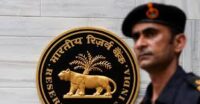When Nigerian international Ashleigh Plumptre first received an offer to play in Saudi Arabia, her instinct was to decline. At the time, her contract with Leicester City had ended, and she was searching for a project that would challenge and inspire her both as a footballer and as a person. After careful consideration and a visit to the Middle East, Plumptre made the bold decision to join Al-Ittihad, becoming the first player to move from England’s Women’s Super League (WSL) to the Saudi Women’s Premier League (SWPL).
Two years later, the 27-year-old defender has renewed her contract with the Jeddah-based club and says her experience has been transformative both on and off the pitch. Plumptre hopes to challenge Western perceptions of Saudi Arabia while acknowledging that women’s football in the country still has a long way to go in terms of development, inclusion, and visibility.
Plumptre, who represented England at youth level before switching allegiance to Nigeria through her paternal grandfather, admits she was initially skeptical. “When my dad, who is also my agent, mentioned Saudi Arabia, I was shocked,” she said. “My first reaction was no. But I decided to give them a chance, and after speaking with the coach and management, I had a really good feeling.”
The SWPL, launched in 2022, is a fully professional league comprising 24 teams across three divisions. Clubs are permitted to sign up to six foreign players, and the competition is funded by the Saudi Public Investment Fund (PIF). Although financial details of Plumptre’s deal remain private, reports suggest that players in the league earn between $60,000 and $120,000 annually, tax-free and often with better facilities than many European counterparts.
Plumptre insists her decision wasn’t motivated by money but by a genuine desire to grow. “When I visited Jeddah, I immediately felt at peace,” she explained. “We talked more about values and personal goals than football. I left knowing this was where I wanted to be.”
Her move, however, sparked controversy. Many fans, particularly from the LGBT community, felt disappointed, given Saudi Arabia’s restrictive laws. “I understand why people were hurt,” she said. “It doesn’t mean I condone everything that happens here. I made this move to be part of something new, not to endorse any ideology.”
Living in Jeddah, Plumptre says she feels safer and calmer than she did in the UK. “There’s a sense of peace here. I can leave my car running with the doors open while unloading groceries and not worry,” she said. “I know my experience doesn’t speak for everyone, but I feel secure here as a woman.”
While Saudi Arabia has made strides toward gender reform allowing women to drive and travel independently, reports indicate that significant restrictions remain. Still, Plumptre describes her experience as positive, highlighting that men are expected to treat women respectfully, with social consequences for misconduct.
On the field, the SWPL faces growing pains. Although stars like Nigeria’s Asisat Oshoala and France’s Kheira Hamraoui have joined, the gap in skill between international players and local talent remains wide. “The standard isn’t what I was used to in the WSL,” Plumptre admitted. “But that means I have to challenge myself in new ways and take more responsibility for helping others develop.”
Training conditions are steadily improving. “When I arrived, our facilities were basic. Now we have our own gym, locker rooms, medical clinic, and training pitch,” she said. “It shows progress.”
Attendance, however, is one of the league’s biggest challenges. Most matches draw sparse crowds, which Plumptre attributes to limited community engagement. “We don’t have many fans yet, but that can change. In England, kids and families attend games because of outreach programmes something Saudi clubs are starting to adopt.”
Despite the challenges, Plumptre remains optimistic about the sport’s future in Saudi Arabia. “I don’t think the country is ready to host a Women’s World Cup yet it needs time. The focus should be on steady, meaningful progress that empowers Saudi women to grow into world-class athletes.”
Her journey has become a symbol of resilience and open-mindedness a reminder that sometimes, growth begins where comfort ends. For Plumptre, Saudi Arabia is more than a football chapter; it’s a chance to redefine narratives and help shape the future of women’s sport in a country undergoing profound change.














Leave a comment